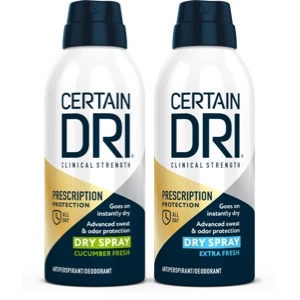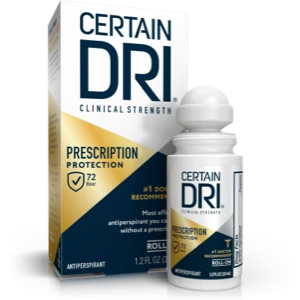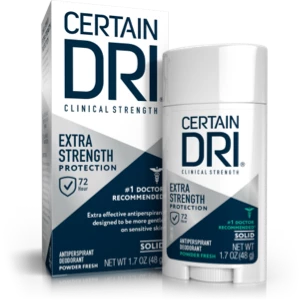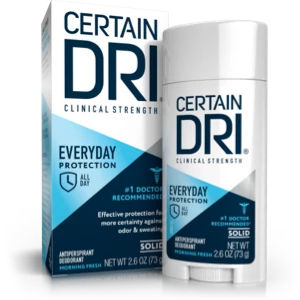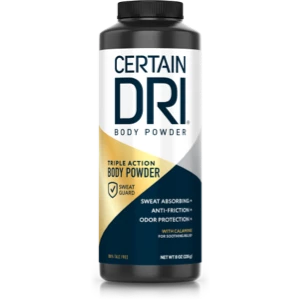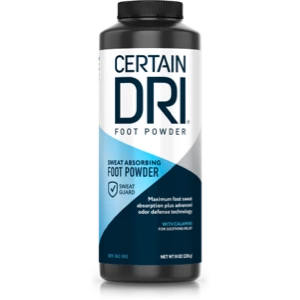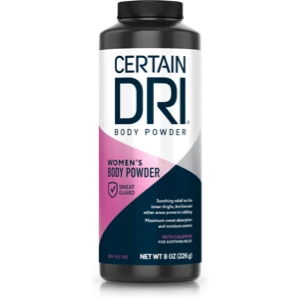When To See A Doctor When Sweating Too Much
Summer weather is here and the temps are soaring. Look around. On the subway, at the gym, in the park, there’s certainly more sweat around than there was a few months ago. Which makes sense because, duh, sweating is how humans dissipate excessive and potentially dangerous heat.
But while the 4 million sweat glands sprinkled all over your body and the perspiration they produce are absolutely normal, there is such a thing as too much of a good thing.
For many people, recognizing when they’ve reached that point is kinda obvious. In fact, one expert in excessive sweating (medically known as hyperhidrosis) reported to WebMD that “Pretty much anyone who comes to me complaining of excess sweating has it.” Similarly, a co-founder of the International Hyperhidrosis Society has said, “Most people really do understand when they are sweating too much.” Bottomline, if you think you sweat too much, you’re probably right.
Of course not all of us know when to trust our guts and sometimes we need help convincing others (like our healthcare providers, parents, employers, and friends) that there’s something serious going on. In such cases, specific guidelines can be useful.
So, if you’re wondering whether excessive sweating is something you should talk to your doctor about, or if you need help explaining the damaging nature of your condition to others, here are some tips from the International Hyperhidrosis Society, WebMD, and the UK’s National Health Service to help.
- Hyperhidrosis, or excessive sweating, is often visible and impactful sweating. Sweat may run or drip on the skin, clothes or hair may become noticeably damp, items may be dropped or damaged due to wetness, and affected individuals will likely feel physically uncomfortable as well as embarrassed, anxious, or ashamed.
- Individuals with excessive sweating often sweat 4 or 5 times more than what is considered “normal” or “expected” as a reaction to the weather, exercise, or stress. If, for example, you are sitting in your air-conditioned office or classroom and still dripping with sweat, that’s probably excessive sweating.
- People living with hyperhidrosis frequently say that their lives are dictated by their sweating. Clothing choices, make-up, hairstyles, careers, hobbies, sports or school activities, and social interactions can all be negatively affected by hyperhidrosis sweating.
- To deal with their sweating, people with hyperhidrosis may carry supplies such as fans, towels, powders, antiperspirants, and extra clothing.
- Mental wellbeing and happiness are often affected by excessive sweating with many sufferers reporting sadness, stress, decreased confidence, despair, depression, or anxiety related to their sweating.
- Sometimes, skin problems can result due recurring dampness. Infections (bacterial or fungal) or skin breakdown can occur. Extreme sweating can also cause a person to feel cold or chilled. Slips, falls and other accidents can also occur.
Unfortunately, many people experiencing excessive sweating are too embarrassed by their problem to seek help. This is a shame because treatments and combinations of treatments can help to make life with extreme sweating much more manageable and “normal.” It’s also very important for anyone with new or different sweating patterns to talk their doctors about their symptoms because, sometimes, sweating can be a symptom of another underlying medical condition that should be treated in its own right. This type of sweating-as-a-symptom is called secondary hyperhidrosis and there are a number of different medical conditions and medications that can cause it. Learn more about secondary hyperhidrosis from the International Hyperhidrosis Society.
If, however, you and your healthcare provider have ruled out other reasons for your excessive sweating and have determined you have “idiopathic” sweating (this is sweating with no known cause), it’s time to get treatment.
With your doctor’s help you can decide whether antiperspirants, like Certain Dri, are the right choice for you, whether you should be using antiperspirants in combination with another treatment, or whether other treatments on their own are the most appropriate choice. This is a very individual and dynamic process and often some trial-and-error and tweaking will be necessary to find the right solutions for your unique situation.
If you’re using antiperspirants like Certain Dri, there are a couple important tips from the International Hyperhidrosis Society to help you get the most out of them:
- Apply your antiperspirant at night before bed when your body tends to sweat the least. If you’d like to apply it again in the morning, that’s fine, but be sure you keep up the nighttime applications, too.
- Apply your antiperspirant to completely dry skin to help prevent irritation. A hair dryer set to a gentle setting can help.
Whether you’ve been diagnosed with hyperhidrosis, are planning on talking to your doctor soon about your extreme sweating, or just want to feel drier on a day-to-day basis, powerful antiperspirants like Certain Dri have a role to play.
In a 2017 survey, 85.3% of the dermatologists surveyed recommended the active ingredient aluminum chloride most often for patients with excessive sweating. Without a prescription and on the store shelves, you can only find aluminum chloride in Certain Dri Prescription Strength Clinical Roll-On. In fact, Certain Dri is the #1 recommended brand of antiperspirants for people with hyperhidrosis. And, because Certain Dri is water-based, not alcohol-based like some other products, it’s kind to your skin.
Spend more time this summer enjoying yourself and less time worrying about sweating by finding expert medical advice from your doctor and the right antiperspirant to meet your needs.


